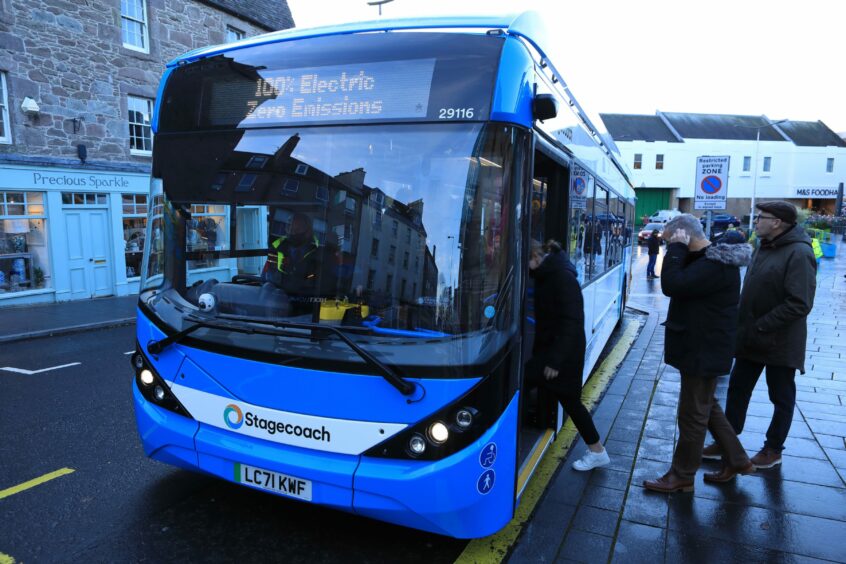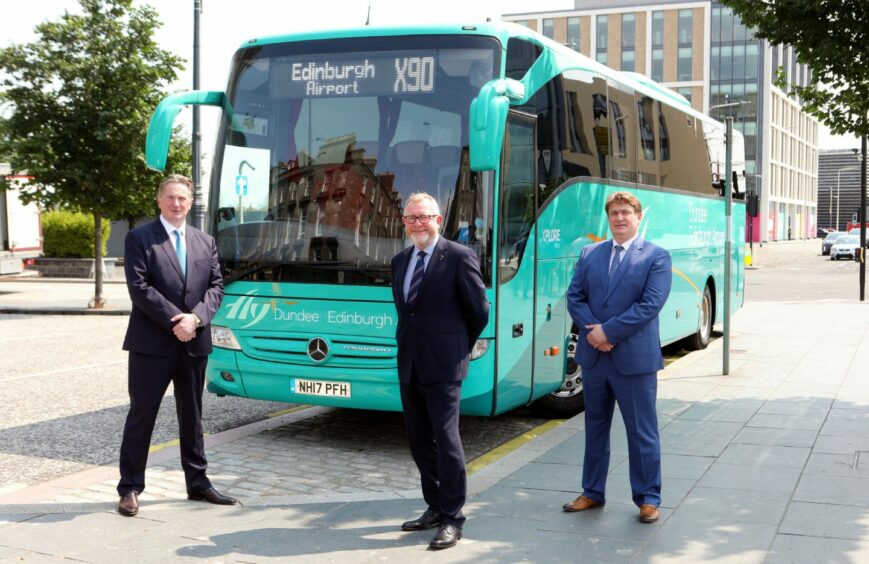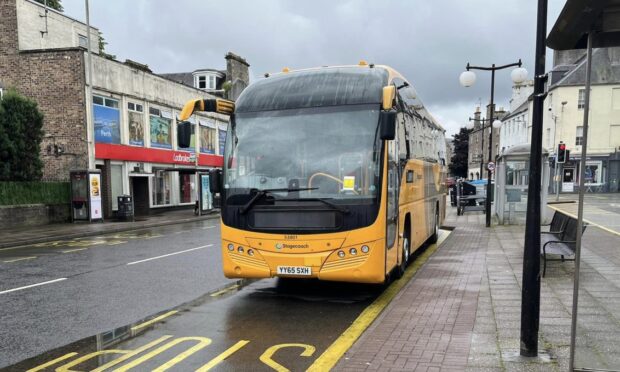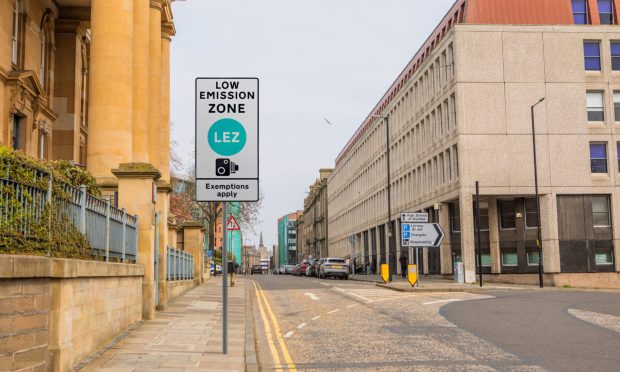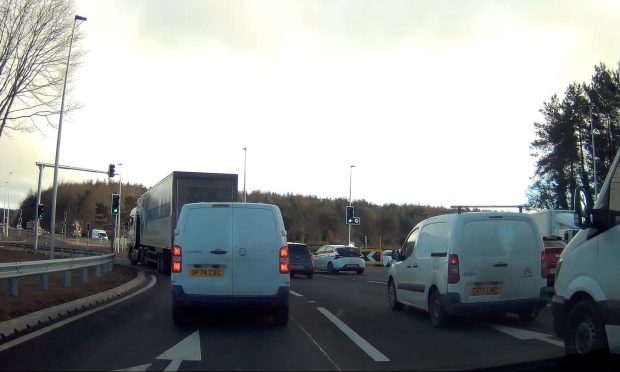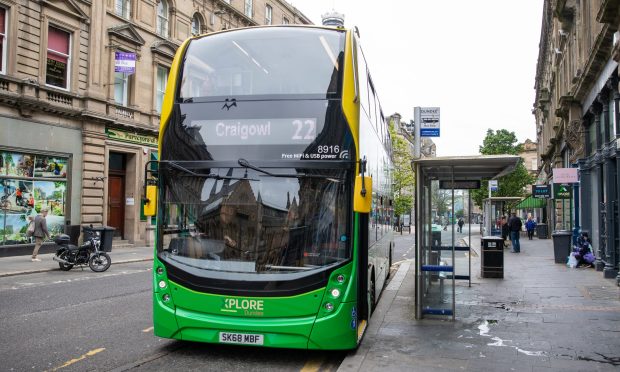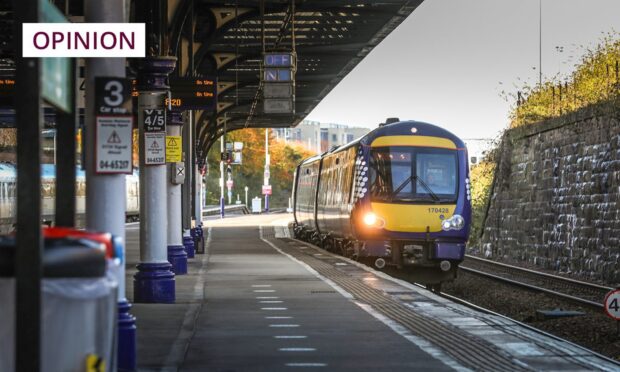Fife and Tayside council chiefs will be able to set up and run publicly-owned bus companies from as early as summer 2022.
Scottish Government transport minister Jenny Gilruth announced councils could create their own bus companies by July 2022 in a bid to reverse a long-term decline in passenger numbers.
But trade union Unite labelled the scheme “just words” after questioning how the Scottish Government would fund and support councils to create such companies.
And existing bus companies have warned of the potential perils ahead.
The legal powers to drive the change are contained in The Transport (Scotland) Act 2019.
Jenny Gilruth is also the SNP MSP for Mid Fife and Glenrothes.
She said: “Local authorities asked for greater powers to run their own bus services and I’m pleased the Scottish Government will now deliver this.
“As with many aspects of the Transport Act, the provisions empower local authorities with the flexible tools they need to respond to their own transport challenges.”
Bus services are ‘unreliable, dysfunctional and expensive’
Respondents to a recent public consultation said most of Scotland’s bus services were “unreliable, dysfunctional and expensive”.
Bus firms warned local authorities over the challenges they are likely to face.
Xplore Dundee responded to the Scottish Government’s recent consultation on the plans.
The company’s statement said: “One of our main concerns is that local transport authorities fully consider the motivation, resources required and consequences of pursuing the running of their own bus services.”
The company said councils should be required to “provide clear evidence that this course of action is the best for all concerned” before running bus services of their own.
Ralph Roberts is CEO of McGill’s Group, which owns Xplore Dundee.
He welcomed the guidance.
“I am sure that it will generate much debate in certain quarters in the coming days.
“In the meantime, McGill’s are committed to working in partnership with all of our stakeholders to ensure that the people of Dundee have the best possible bus service from Xplore Dundee.”
Will our local councils take up the Scottish Government’s public ownership bus offer?
Transport officials at Perth and Kinross and Angus Councils currently have “no plans” to run their own bus services.
A Dundee city council spokesman said its transport officials would present a report to the city development committee in the coming months which would “set out considerations surrounding any future municipal bus operation in Dundee.”
John Mitchell is a Fife Council transportation manager.
He welcomed the new legislation.
“This change has potential implications for councils across Scotland and we have to consider many operational and financial issues before we make any decisions about the way forward.
“Once Scottish Government guidance is available we will be in a much better position to consider whether this is an option for Fife.”
Officials are exploring what the additional “flexibility” from the Scottish Government could mean for local services.
Legislation enabling other options for councils to improve bus services will follow in 2023.
That includes bus franchising – where local authorities contract companies to provide services.
Partnerships where local authorities pair with existing companies to bid for funding and deliver services are already underway.
Supporters of the municipal approach give Lothian buses – owned by Edinburgh, Midlothian, East Lothian and West Lothian councils – as an example where bus services work well.
Trade unions have been campaigning for more municipal services through the STUC’s ‘Our Buses, Our Climate’ campaign since 2021.
Yet Dougie Maguire, Unite regional coordinator, suggested the Scottish Government funding available for the latest plan was still focused on those councils working with existing firms, rather than providing a genuine alternative.
He said: “The critical part of this equation is that local authorities have access to available funding streams and revenue support in order to make this a reality.
“We need urgent clarity on exactly what they mean by ‘greater powers’ for local authorities because so far it’s just words.”

